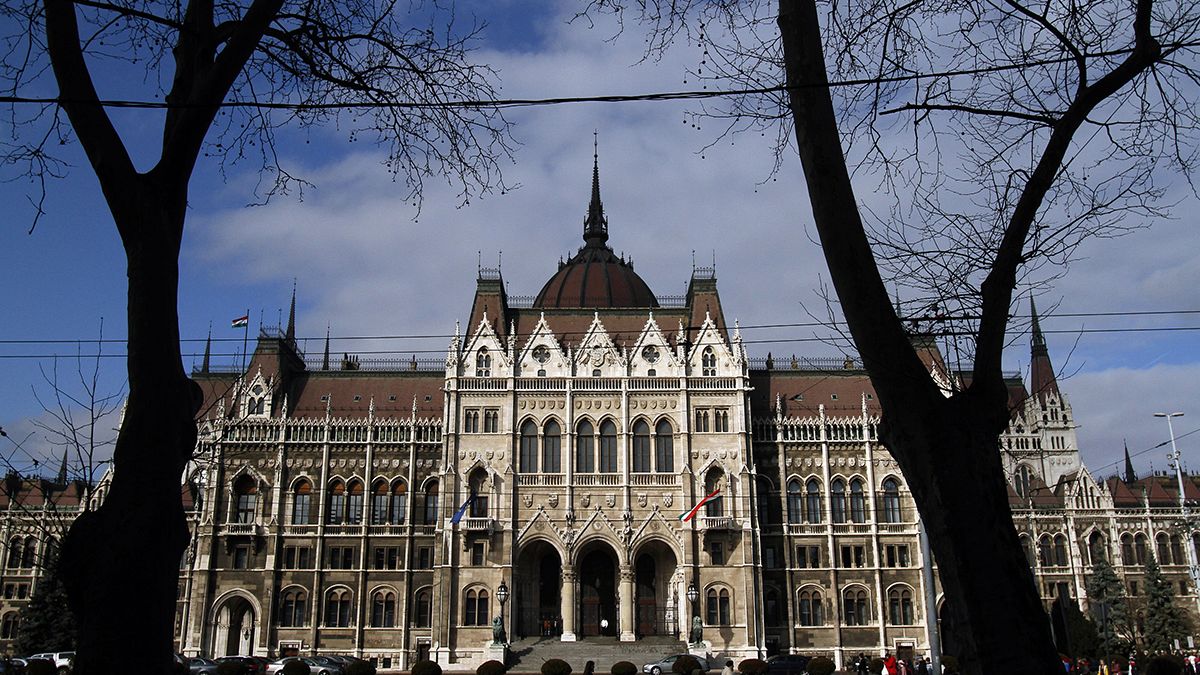On Sunday, Hungarians go to the polls with new rules on the choosing of members of parliament. Since the change of regime in 1990, the election process has changed radically.
The right-wing Fidesz party used its two-thirds majority to change the election law. This time, there will be only one round, and half as many MPs can be elected.
The lines have been redrawn around the constituencies. This is where the battle will be fought. The candidate with a simple majority, half the votes plus one, wins all. Trans-border Hungarians can also vote in the election if their ancestors were living in the country before the First World War and have applied for Hungarian nationality.
The number of members in the Hungarian parliament has been halved to 199. Among the changes while the Fidesz party has enjoyed a two-thirds majority, the electoral rules have been rewritten.
Since publicity space on billboards is attributed by town administrations headed by pro-government officials, opposition parties have had less exposure during the campaign period.
Traditionally in Hungary, right-wing supporters are more likely to turn up at party rallies. The last big pro-government gathering was organised by the Fidesz-affiliated Civic Unity Forum.
Prime Minister Viktor Orbán said that what hadn’t been achieved in 20 years, “…we did in four years — everything we could, and, sometimes, I felt we did even more.”
Euronews’ Budapest correspondent Andrea Hajagos said: “Parties made their final campaign statements. Orbán spoke in Hero’s Square. He told supporters that his government had rebuilt Hungary and therefore asked them to give him another term when they vote on April 6. Opposition leader Attila Mesterházy held his last rally at the Opera, calling on people not to support Fidesz, because the last four years has been a time of impoverishment.”
Mesterházy said: “We must pay them back for all the turpitude, humiliation and intimidation we had to bear in the last four years.”
The left-wing alliance was a forced marriage. Electoral reform imposed a single round of voting, so left parties had to form a joint list, though almost the only thing they have in common is their objection to Orbán.
The far-right party Jobbik is expected to gain from these polls, attracting voters who find Fidesz has not gone far enough. During campaigning, Jobbik used less anti-Jewish and anti-gypsy hate-speech than in the past.
Campaigning by all sides flung hostility around, with nearly no debates between the candidates on serious matters. Even Fidesz declared there was no party programme — that it just planned to pursue its policies, such as lowering energy bills. Days before voting, the government cut the gas price.
The opposition attacked Fidesz’s deal — wrapped in secrecy — to have a Russian company expand Hungary’s nuclear power plant, with Moscow paying the some 10 billion euro cost.
But the left had lead in its wings, dogged by the corruption scandal surrounding the Socialist Party’s vice-president, arrested over unexplained hundreds of thousands of euros stashed in hush-hush Austrian bank accounts.
Also just in time for the election, parks and a central square in Budapest have been refreshed, a new metro line has opened… and soon: a stadium in Viktor Orbán’s home village.
Euronews’ Hungarian election campaign anchor, Gábor Kovacs, discussed the electoral campaign with political analyst, Gábor Török.
Gábor Kovacs, euronews: “Could you tell us what is at stake in this election?”
Gabor Török, political analyst: “If we’re to believe the latest opinion polls, the real question is by how much of a majority will ruling party Fidesz win. They have a good chance of maintaining their two thirds majority.”
euronews: “How do you explain that two thirds majority victory when, according to opinion polls, over half those surveyed would like to see a change?”
Török: “Yes, most have shown that half the population would like a change, but we are also seeing a large number of people unable to decide what party they would vote for.”
euronews: “How should they make that decision? During the electoral campaign the party programmes weren’t discussed, there were no debates between the candidates and there was little in the way of canvassing on the streets. So how are voters making up their mind?”
Török: “Frankly, there’s only one question for voters, whether Viktor Orbán should stay or go. The left and right is defined by Orbán. In Hungary, the right wing is all about what he does and the left is all about what he doesn’t do. It’s this that is polarising the population.”
euronews: “What’s your opinion of the left wing electoral campaign?”
Török: “When comparing all the parties taking part in the election, theirs is the weakest. Their unity only exists on paper but they can’t function together politically. What’s puzzling is that the electoral system has made them campaign together but there is no unity and this paralyses them politically.”
euronews: “The far right Jobbik party have made gains in the campaign, haven’t they?”
Török: “They’re the biggest surprise in the electoral campaign. It’s likely that they’ll get the same result as they did four years ago, around 16%, or they could do even better and get over 20% of the votes.”
